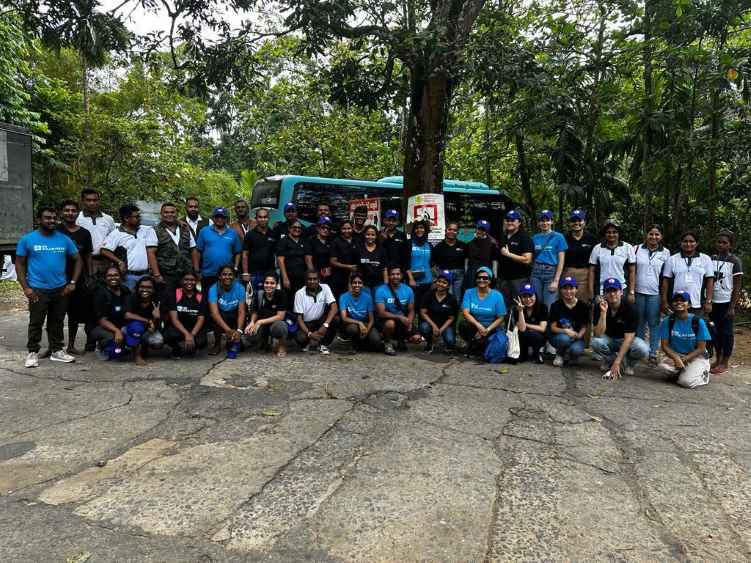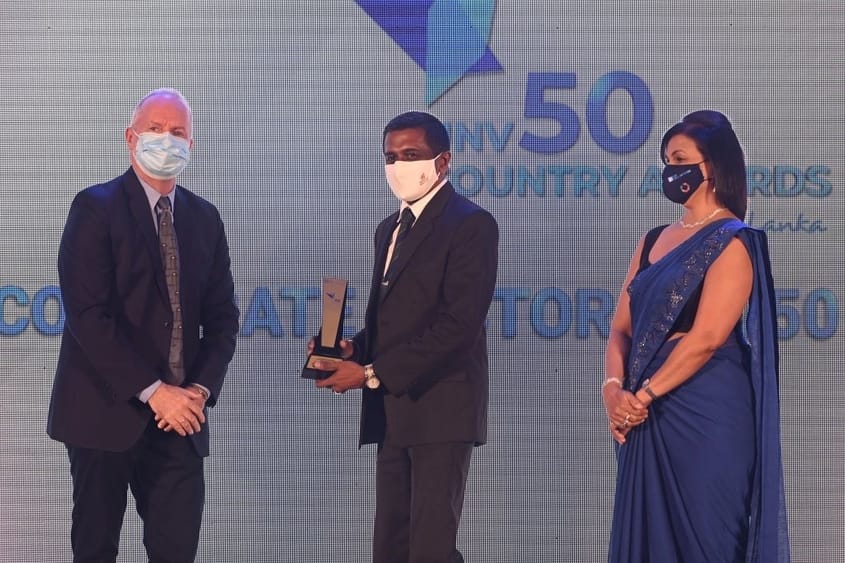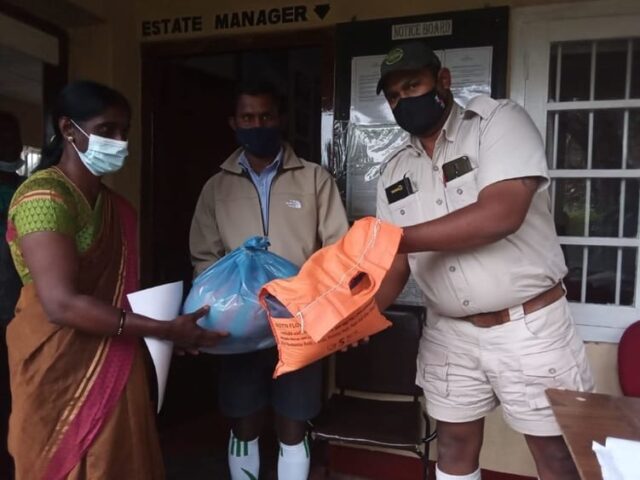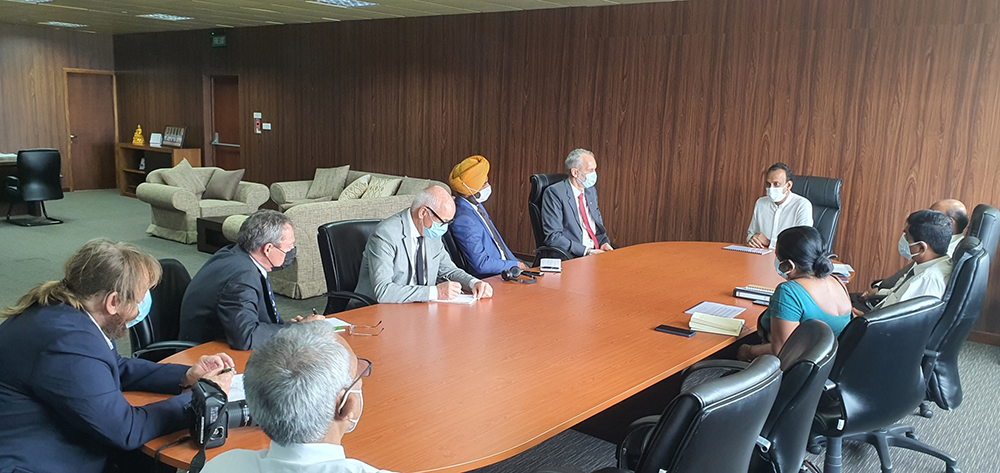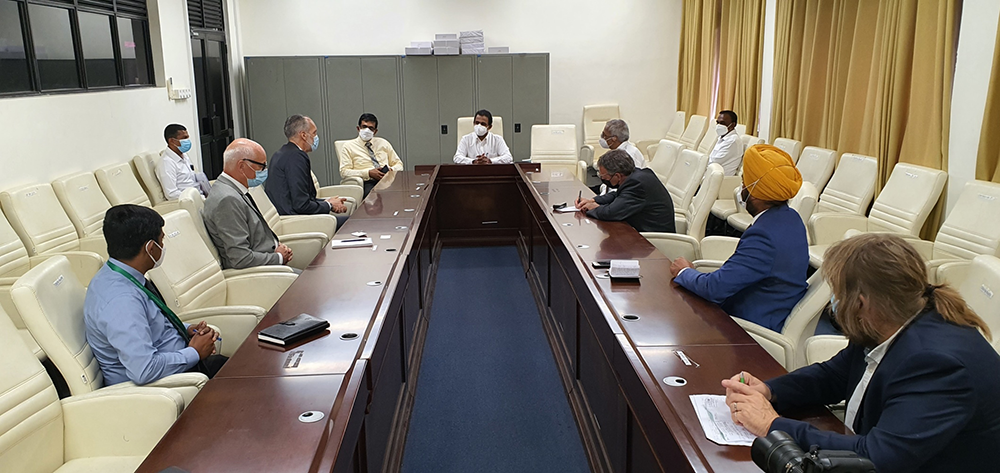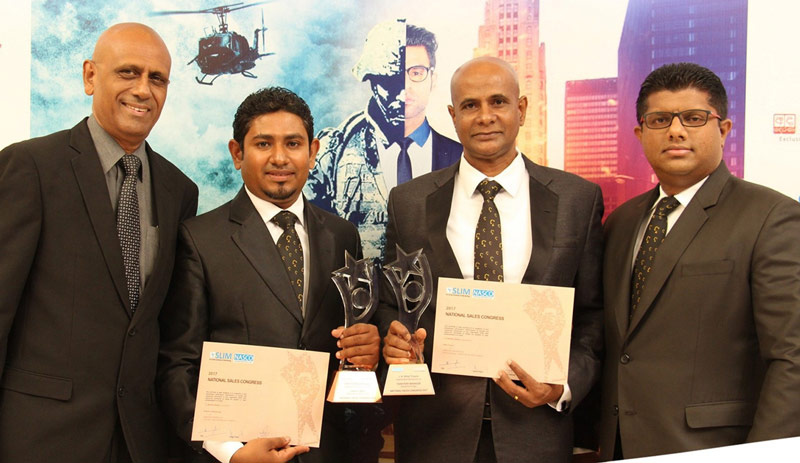In our latest ‘RPC Innovation Update’ we explore one of the world’s most powerful success stories in sustainable plantations management. Kelani Valley Plantations PLC (KVPL) is a trailblazing pioneer in the fields of Human Resource Management (HRM), agriculture and environmental best practices. Today they are working to redefine best practices, and establish a vibrant new model for plantations that puts people first.
Managed by Hayleys Plantations, KVPL has a long legacy of leadership in sustainability. In 2006, it became the first plantation company worldwide to sign the United Nations Global Compact (UNGC), endorsing principles of labor standards, human rights, environment, and anti-corruption. They are also a signatory to the UN CEO Water Mandate addressing water-related challenges.
“By pursuing excellence we build on our legacy of sustainable and ethically produced premium Pure Ceylon Tea. That is how we can reliably produce the right product to create the perfect cup of tea. This requires a total commitment to quality across the production process. We don’t see ourselves as just a tea company. Through our holistic commitment to sustainability and ethical management, we have gone beyond the conventional boundaries of plantation management.
“By internalizing excellence, we deliver superior products, provide employees with sustainable livelihoods, and manage the business in a way that drives progress on our ESG commitments and aligns with KVPL’s Corporate DNA and the broader goals of the Hayleys Lifecode,” KVPL Director/CEO, Anura Weerakoon explained.
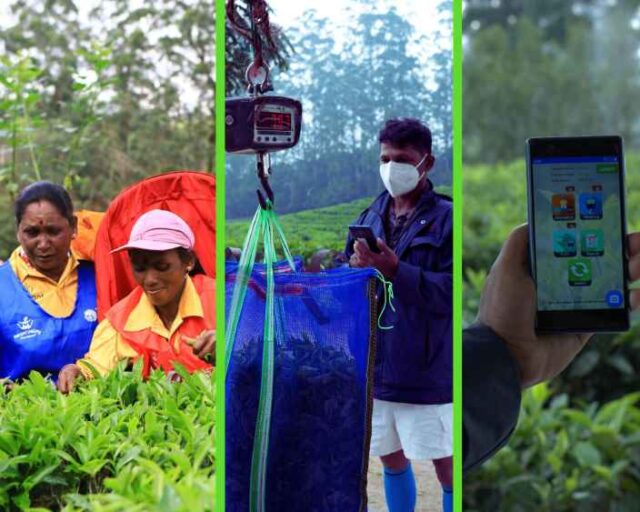
A global pioneer in humane HRM
KVPL prioritizes progressive people management channeled through employee and community-focused initiatives to enhance livelihoods and quality of life, generating stronger employee engagement and retention.
KVPL’s renowned “Home for Every Plantation Worker” program is a prime example of this commitment in action, providing comprehensive support in health, nutrition, well-being, capacity building, and living conditions.
“The plantation industry generally, and tea specifically is experiencing severe shortages of employees. While there are no short-term solutions, our experience proves that the best way to reverse this trend is continuous investment in our people to provide them with the systems, tools, knowledge and training to incorporate global best practices into their daily operations.
“This helps increase employee earnings while making the work itself more manageable and rewarding. This approach is what defines the Sustainable HRM Model practiced at KVPL. It encompasses both conventional practices – from employee recruitment to daily operations, career development and retirement – as well as Sustainable Human Care and Knowledge Management Practices,” KVPL General Manager, HR & Corporate Sustainability, Anuruddha Gamage said.
Over 8,700 employees and their families have benefited, impacting 58,000+ community members. KVPL also ensures extensive support for mothers and children, offering pre/post-natal care, establishing Childhood Development Centers (CDC), and promoting digital literacy in collaboration with UNICEF. Professionally managed by qualified teachers from the community the CDCs provide a strong educational foundation for children up to age 5.
Together with its sister companies in the Hayleys Plantations sector – Talawakele Tea Estates PLC and Horana Plantations PLC, KVPL’s innovations in humane HRM have won the company resounding global recognition.
KVPL and TTEL were first in plantation industry to be ranked among Asia’s Best Workplaces, Great Place to Work, and Best Workplaces for Women. KVPL also achieved consecutive Great Place to Work certification in Sri Lanka in 2022/23 and 2023/24.
KVPL’s investment in its people is nothing short of extraordinary. Over the past year alone, the company has built 61 new houses, 3 water schemes, and provided sanitation facilities with 5 toilets. A further 164 housing units were electrified, and 3 field restrooms installed, supporting further improvements for conditions on the ground.
KVPL’s investment in health has been equally impressive. In 2022, they conducted numerous initiatives to support and empower estate communities. These efforts included 30 Eye Care Operations, providing cataract operations and spectacles to 547 individuals across 34 clinics. Additionally, they organized 11 oral cancer prevention programs, 53 AIDS awareness programs, and 89 Dengue awareness programs. These endeavors have contributed to the well-being of employees and their families, enabling them to lead more productive and fulfilling lives.
KVPL has also invested extensively in digitalization. This includes simple but groundbreaking interventions such as introducing digital weighing scales and Near-Field Communication (NFC) cards, and real-time weighing systems. These digitalized systems empower employees and the company to `keep track of daily harvests, further enhancing engagement and aligning the workforce towards greater productivity.
Over the past year alone, KVPL has collectively invested Rs. 195 million on community development strategy, enhancing living environment, health and nutrient, youth empowerment and community capacity building with 130,000+ beneficiaries. KVPL is also further enhancing productivity through investments into mechanization, precision agriculture and drone technology.
A nursery for sustainable innovation and circular plantations
The other half of KVPL’s game-changing approach to plantations is centered on innovations to the business model itself. This manifests in new technologies and best practices, and diversification into new crops, as well as tourism and hospitality.
“Our rationale is simple but powerful. We want to leverage our people and our assets to make optimal use of the land that we have been charged with managing. Tea and rubber will always serve as core pillars of our business. But we are actively developing new streams of revenue through a wide array of crops and any other sustainable possibilities for expanding export revenue,” Weerakoon stated.
In recent years, these efforts culminated in KVPL branching out into coffee cultivation, and a vast array of export crops. From traditional export staples like cinnamon, and coconut to new and increasingly lucrative diversifications into agarwood, turmeric, ginger, coffee, and pepper.
| Tea | Rubber | Cinnamon | Coconut | Cardamom | Coffee | Agarwood | Pepper |
| 3,293 Ha | 3,683 Ha | 179 Ha | 264 Ha | 5 Ha | 11 Ha | 10 Ha | 11 Ha |
“Sustainable eco-tourism is another excellent example of high value niches that we can tap into. Given our commitments to assess 100% of the biodiversity present on our estates, and high conservation value (HCV) areas that we protect, we are able host tourists, as well as scientists, biologists and conservationists from across the world who wish to come to study this rich array of flora and fauna in the country. We are currently exploring the feasibility of a sustainable tourism model at Halgolla Estate
“While the absolute number of tourists we can host will not be large the growing value of sustainable tourism can generate invaluable dollar income, and support the emergence of a truly green national economy and preserving our nation’s priceless natural resources,” Weerakoon stated.
Notably, KVPL pioneered comprehensive biodiversity assessments in Sri Lanka, partnering with the IUCN in 2008. Through these continuous assessments KVPL has tracked a notable 40% biodiversity increase across all of its estates. Remarkably, over 25% of flora and fauna species are endemic. The company invested Rs. 7.3 million in habitat conservation and environmental management to support these initiatives.
Their commitment to biodiversity conservation in Sri Lanka continues through the establishment of the Ellabeda Ridge Corridor (ERC) – a vital ecological corridor that provides essential support for leopard populations and preserving the overall biodiversity – in collaboration with the Wilderness & Wildlife Conservation Trust (WWCT).
KVPL’s Halgolla Estate was also the first to partner the Netherlands-Sri Lanka pilot project on “Agroforestry on Tea Plantations in Sri Lanka. The project aims to enhance environmental and socio-economic sustainability through a public-private partnership focused on agroforestry development in the plantation sector.
KVPL is also committed to the United Nations Sustainable Development Goals (SDGs) through its comprehensive EESG Strategy and Corporate DNA. The company prioritizes environmental sustainability by reducing greenhouse gas (GHG) emissions and carbon footprint, transitioning from non-renewable to renewable energy sources.
| Hydro power capacity (2022) | 7 million KWh |
| Solar generation (2022) | 113,836 unites |
| Effluent treatment | 97.7 million liters |
| GHG emissions (Scope 1,2,3) | 7,759 tCO2e |
| GHG Savings | 3,676 tCO2e |
“Moving forward, our goal is to uncover all opportunities for value creation, on a global scale, and feed the returns of these innovations back into the business and the people and communities that depend on them, and forging a new path for the global plantation industry. This is the true meaning of circularity,” Weerakoon said.



